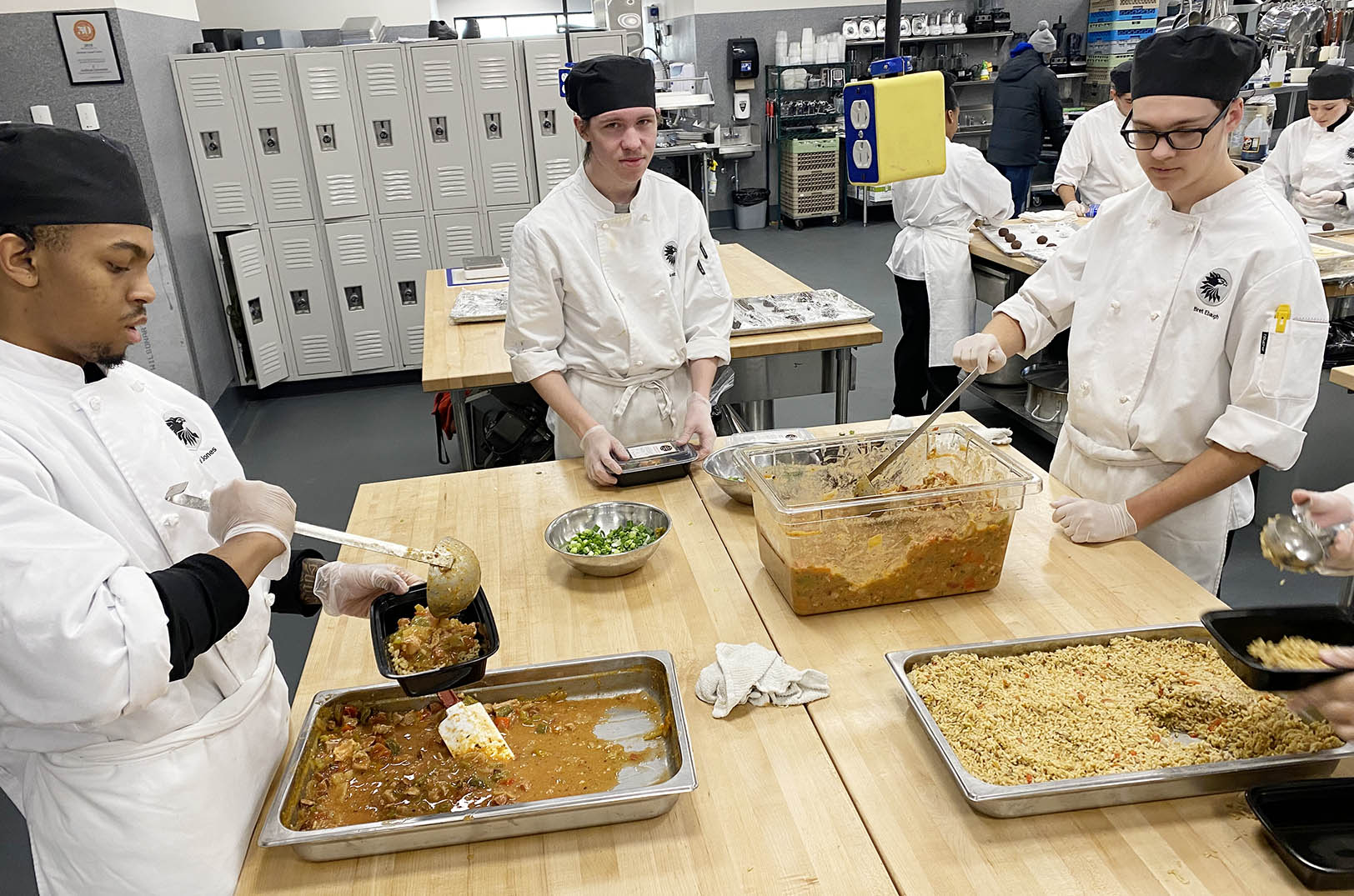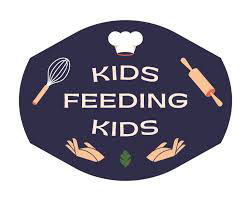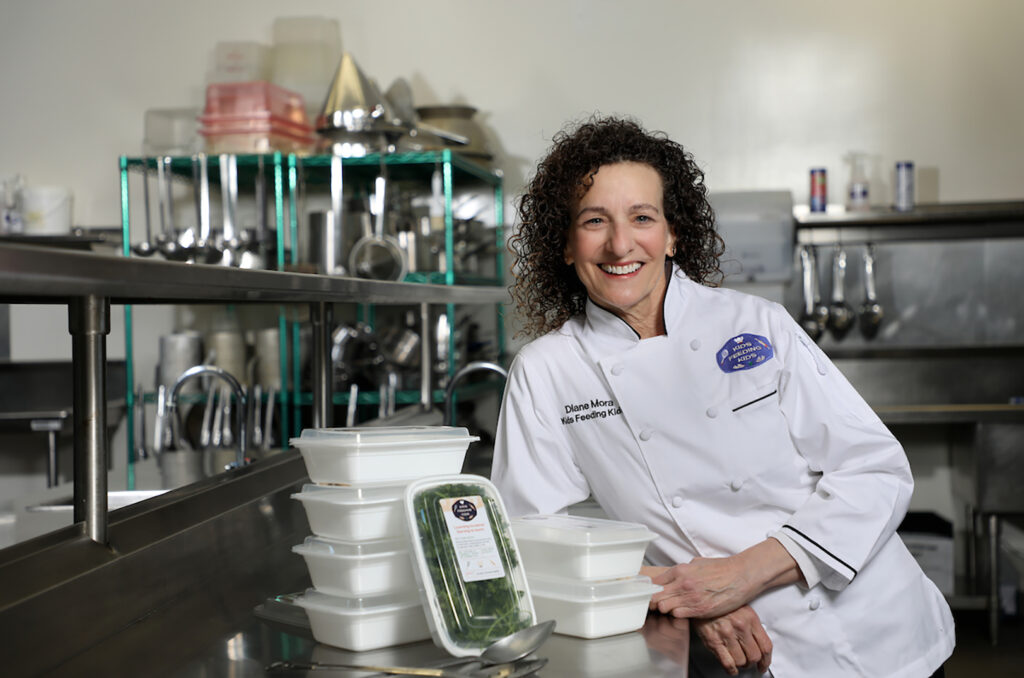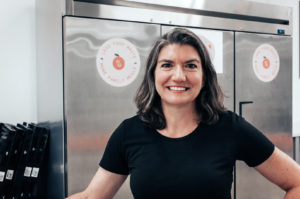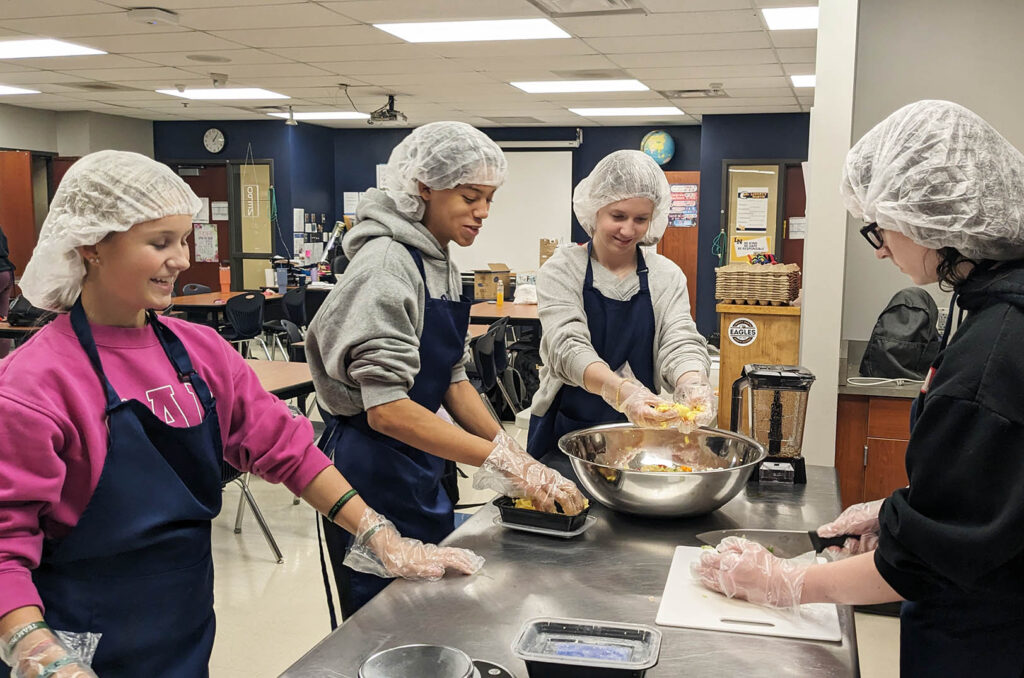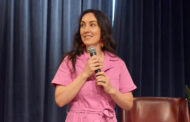High school students in the Kansas City area are doing their part to stamp out food insecurity one recipe at a time, Tamara Weber shared.
Kids Feeding Kids — a sister program of Pete’s Garden, both founded by Weber — partners with high school FACS and CTE culinary classes to teach students about critical topics related to food access and sustainability. The program aims to empower young people to give back to their communities by preparing up to 1,000 free, take-home family dinners.
“My idea was that in addition to preparing the meals, we would be able to provide a curriculum to the students,” Weber explained. “So they would learn about the environmental impact of food waste and then also learn about sustainable food systems and the root causes of food insecurity.”
“The program provides classroom lessons that will last a lifetime: Understanding and empathy for those facing food insecurity; awareness of the impact of food waste and the importance of sustainable food systems; appreciation for the connections that shared meals can foster; and recognition that happiness can often be found in helping others,” she added.
Weber is passionate about reducing food waste, fighting food insecurity, and restoring family mealtime. In 2019, she founded Pete’s Garden — a nonprofit that partners with caterers, restaurants, and food service organizations to save unserved, prepared food that would otherwise be thrown out. It is then packaged into easy, ready-to-eat meals and delivered to social service organizations that distribute them to families in need three days each week.
RELATED: How one social venture is saving family mealtime with would-be waste
When the pandemic hit in 2020, a lot of Pete’s Garden’s food donors shut down, Weber explained. She looked for places that might be able to cook meals for the families they were serving if she still provided the ingredients. A board member suggested Broadmoor Bistro, a restaurant run by Shawnee Mission School District students.
Once the bistro was on board — and the Kids Feeding Kids program received a grant from the 15 and Mahomies Foundation for its pilot — Weber organized a debut event in December 2021. The students made 250 pot pies, enough for 1,000 servings.
“They enjoyed the experience,” she recalled. “It was an opportunity for the kids to have a community service project and cook for the community.”
Shortly after, other school districts expressed interest and the program took off, she noted.
Once the food recovery program picked up again for Pete’s Garden, however, Weber realized she needed help with Kids Feeding Kids. She hired Diane Mora — who had the perfect background, she noted — to run the program and develop a curriculum in 2022.
“She was actually the teacher of the year in the Kansas City, Missouri, school district in 2019,” Weber added. “But she also has a professional culinary background.”
Since that first event, according to the Kids Feeding Kids site, more than 400 students across a dozen Kansas City area high schools have planned and prepared more than 7,000 meals for families in their communities — everything from homemade chicken pot pies to jambalaya to chicken fried rice.
Once the meals are prepared, Weber noted, the districts can decide how to distribute the food. Some go through their own free and reduced lunch programs, others through social service agencies. Some let Pete’s Garden distribute the meals to partner organizations like Operation Breakthrough and YMCA Head Start.
Bean there, done that
While Weber and Mora have developed standardized recipes for the students to make with provided ingredients, Weber shared, recently they let the students get involved with recipe development.
Students at Liberty North High School have been testing out plant-based protein based recipes. On May 2, the teams competed in a recipe competition with the winning recipe earning a spot in the Kids Feeding Kids cookbook for the next school year.
“We really wanted to try to build on the idea of the sustainability impact of the meals,” Weber explained. “Plant-based proteins, not only are they a more environmentally-sustainable protein, but they’re typically cheaper and healthier.”
On top of using plant-based proteins, the students were also judged on the family-friendliness of their recipes and whether it stayed under the $2.50 cost-per-serving target. Judges included the executive chefs of Lidia’s and the Kansas City Chiefs and Current organizations.
Students used dried beans donated by 21st Century Bean, a farmer-owned business in Western Kansas.
“People think of Western Kansas for beef, which has a negative environmental impact,” Weber noted. “But there’s another very important source of protein coming from Western Kansas.”
Canned beans are typically used more often now, she continued, so the students had a bit of an adjustment period during the early rounds of the competition.
“There’s a little bit more prep and preparation and planning that goes into using the dried beans,” she explained. “So I think that’s been a good learning experience for the kids. Pretty much all of the recipes that used chickpeas, the kids were realizing that they needed to soak or cook the chickpeas longer. Because they weren’t raw, but they were a little hard.”
The students prepared at least 50 servings of their recipes, Weber noted, so they had about 500 meals available to distribute to community partners at the end of the day.
“My hope is that the families that receive our Kids Feeding Kids meals will get curious about plant-based proteins, especially if these students come up with some kid-pleasing recipes,” she added.
Large-batch scale up
Kids Feeding Kids recently received a significant grant from the Overland Park-based WellSky Foundation, Weber shared, which will allow the program to scale up. For the first time this summer, she and Mora are planning a professional development program for teachers across Missouri and Kansas. The three-day program will allow teachers to work through the curriculum and become comfortable with large-batch preparation.
“Right now, every program that we’ve done, Diane has been in the classroom with the teacher, helping to execute the program,” she explained. “But if we want to scale it up, obviously we can’t continue to do that.”
“If we can show that teachers can do this on their own, then we’re excited that we really can take Kids Feeding Kids all across the metro and outside of Kansas City. Because then we’ll have a turnkey, real-world learning program that any family and consumer science teacher can implement.”





